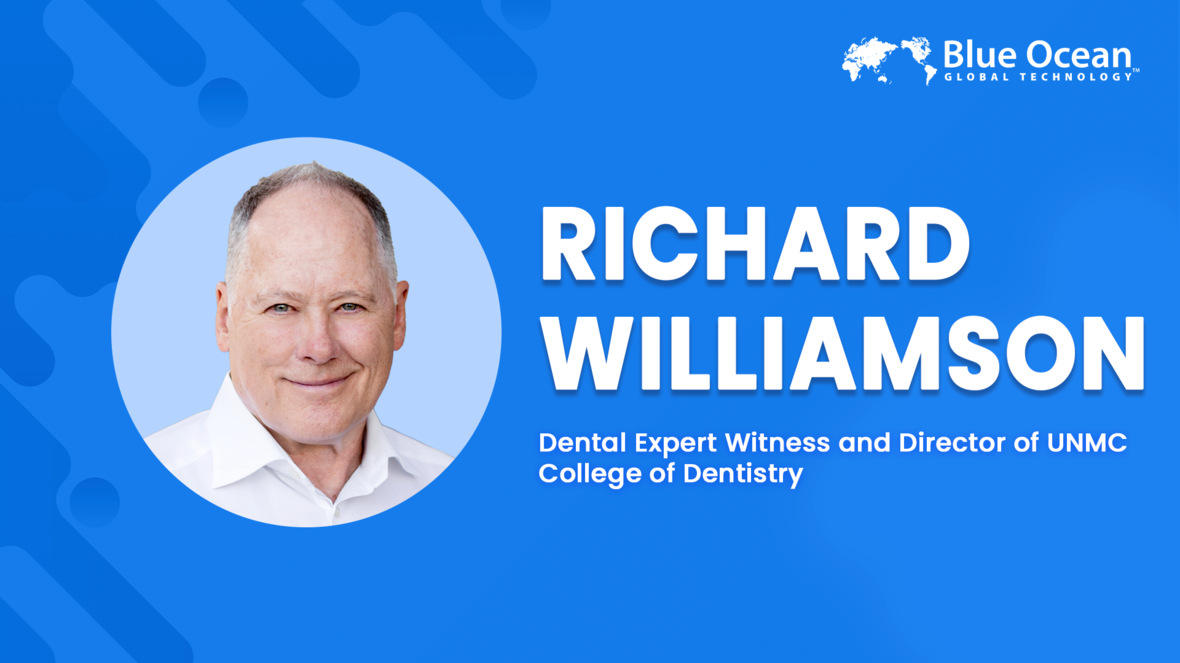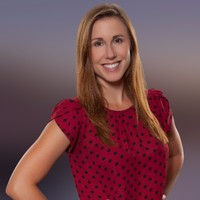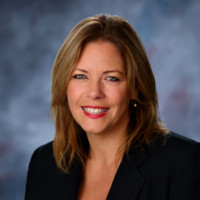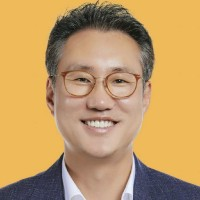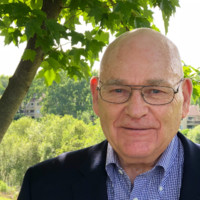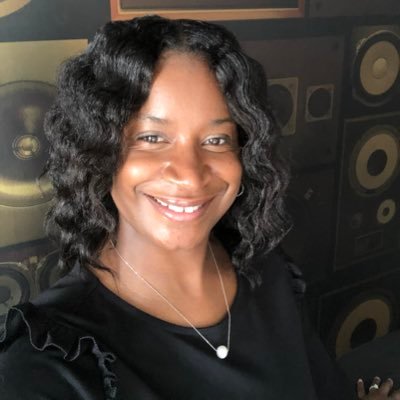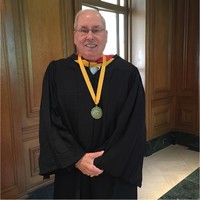About Richard Williamson
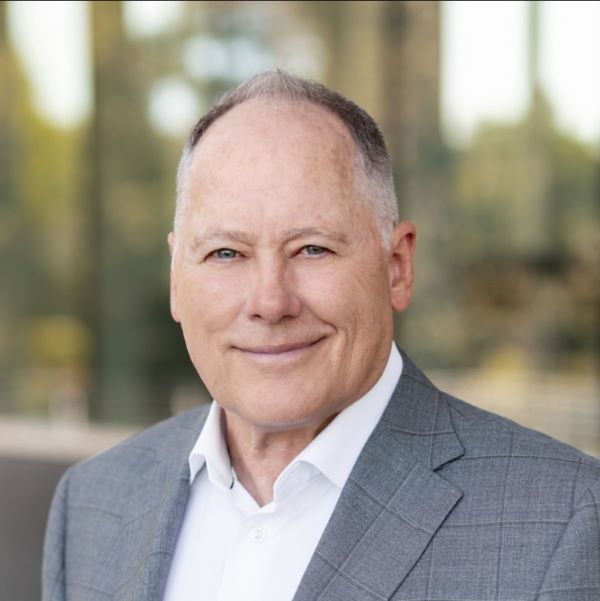
Dr. Richard Williamson is a Board-Certified Prosthodontist with over 40 years of experience in dentistry. He spent 26 years in faculty group-practice patient care and teaching at the University of Iowa College of Dentistry and Dental Clinics and the University of Nebraska Medical Center College of Dentistry in Lincoln, Nebraska.
Dr. Williamson is currently the Director of Implants and Associate Professor at the University of Nebraska Medical Center, teaching Clinical Implantology and Removable Partial Dentures. Additionally, Dr. Williamson is the Director of Student Global Engagement for the UNMC College of Dentistry and collaborates with UNMC, other universities, and disciplines.
Blue Ocean: Please tell us a bit about yourself.
Richard: I had a wonderful childhood growing up in Texas. I was fortunate to have great parents and one sister three years older than me. However, I very clearly remember the 1960s, as a time marked by the civil rights movement, discrimination, segregation with much sadness and violence. At an early age I became aware of politics and this recognition formed a solid foundation for building my social awareness.
As I got older, I became involved in the Cub Scouts and Boy Scouts. We had various volunteer projects, like raising money for women in need, supporting food shelters, and cleaning up our community. I had a lot of fun playing in the woods, and back then, life felt safe. We would leave the house after breakfast, and as long as we were home before dark, our parents didn’t worry about where we were. We were just kids having a good time, and we didn’t get into any trouble.
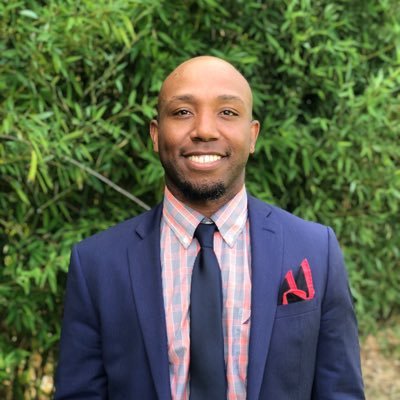
Blue Ocean: Could you share insights about your professional journey? What led you to choose a career in this industry?
Richard: Yes, when I was in college, I always had a keen interest in science, and my fascination with medicine began at a young age, largely because my mother was a nurse. Being around the medical profession was a big part of my upbringing. However, as I progressed through college, I realized that the relationships formed between physicians and their patients often lack depth; you simply don’t spend enough time with them to get to know them.
I also noticed that the amount of hands-on work varies depending on the medical field you choose, and since I always enjoyed working with my hands, I decided to change my path and pursue dentistry. I believed that, as a dentist, I would be able to develop strong, long-term relationships with my patients, seeing them regularly over extended periods. I love talking to people and I discovered that communication was calming to many patients that feel vulnerable, anxious, and frightened when they’re in the dental chair.
As a dentist, I’ve had the opportunity to help individuals, utilize my manual skills, and engage in conversation—after all, when my hands are in a patient’s mouth, it gives me a chance to chat. That’s how I discovered my passion for dentistry.
Blue Ocean: What is something unique you offer your clients in terms of the Expert Witness field in Dentistry and Prosthodontics?
Richard: Having practiced as a general dentist for 17 years, I graduated from dental school and immediately entered private practice, learning how to run a business through trial and error. Being a general dentist is challenging because you need to be proficient in many areas. This extensive experience has given me a unique perspective on patient care, especially when serving as an expert witness.
I understand general dentistry deeply, which allows me to see how general dentists think and solve problems. This insight is different from that of someone who graduated dental school and went straight into a specialty. Experience truly matters, and I’m often reminded of this when colleagues seek my opinion on various issues. I sometimes find myself wondering why they don’t know certain answers, but then I recall that I’ve been in dentistry for 44 years.
My experience as a general dentist, coupled with my role in academia, enables me to explain procedures clearly to patients and adapt my teaching methods to help students learn in their own unique ways. This combination of experience, advanced skills and training is what I believe makes me a distinctive expert witness.
Blue Ocean: What is one trend from your industry that excites you?
Richard: AI has certainly made its mark across various fields, and dentistry is no exception. While we might not always notice its presence, digital technology has revolutionized the way we practice. If you’ve ever had an impression made of your mouth, you know it can be uncomfortable, with that silicone filling your mouth. Now, we can simply digitally scan the mouth, allowing us to create restorations more comfortably for the patient with greater accuracy. This advancement means a much more pleasant experience for patients. The procedures are generally quicker, and patients can often leave with their final restoration just a couple of hours after starting the process, depending on the complexity.
Additionally, for patients who have experienced facial trauma—whether from car accidents or cancer surgeries—digital technology has made it much easier to produce facial prostheses. This shift towards digital solutions is truly exciting for our field.
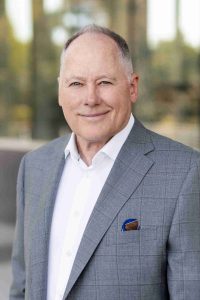
Blue Ocean: How have you differentiated yourself and what underpins your success?
Richard: One of the key differentiators in my career is the advanced training I’ve received. I completed three years of specialized training in prosthodontics and went on to become board-certified. In most medical and dental specialties, board certification involves a rigorous examination process, which includes both oral and written components, as well as presenting treatment plans for various procedures.
This process is quite intense, and only a small percentage of prosthodontists choose to pursue it. Many may opt for private practice, viewing the additional credential as unnecessary. However, I found that the preparation for the board exam profoundly changed my approach to patient care.
Board preparation forces one to consolidate all your knowledge and approach diagnosis, treatment planning, and care from an enriched perspective. In specialty training, the focus is often narrow, but preparing for such a high-level examination brings everything into sharper focus. This experience has set me apart from those who haven’t undergone advanced training or board certification, making it a significant distinguishing factor in my career.
Blue Ocean: What does your typical day look like?
Richard: I’ve been in academics for about 23 years now, and my typical day centers around students in the clinic. In the past, I used to teach more classes, but now most of my time is spent in the clinic, guiding students on how to diagnose and create treatment plans for patient care. I’m particularly involved in restoring dental implants. For those unfamiliar with implants, think of them as similar to a fence post: an implant is like a screw that goes into the bone, and we then build a tooth on top of it, just like a fence is supported by the post.
My day usually involves teaching chairside, treating patients alongside the students, demonstrating procedures, and helping them develop critical thinking and problem-solving skills. I’m often on the move, called to different areas of the school to provide opinions and consultations, which makes every day unique.
Blue Ocean: What advice would you give your younger self and other young people aspiring to pursue a career in dentistry and prosthodontics?
Richard: The advice I would offer to a young person considering a career in dentistry or any field is to make the most of your college years by exploring a variety of subjects. I focused solely on science during my studies, and over the years, I’ve come to wish I had also majored in a foreign language, history, finance, or some area of business to broaden my knowledge and skills.
I highly recommend shadowing and observing in as many dental offices as possible. This hands-on experience is crucial for truly understanding the field, especially since it’s constantly evolving. Gaining real insight into what dentistry entails will be invaluable before applying to dental school.
Blue Ocean: What is something you are grateful for?
Richard: I’m truly grateful for the opportunity to attend dental school and practice as a dentist. It has allowed me to help people not only in the dental office but also on a larger scale through medical-dental missions. My greatest satisfaction comes from three main areas: teaching students (especially those who are struggling) and treating veterans.
In the U.S., the Veterans Administration provides medical care for all veterans, but dental care is only available to those who are 100% disabled, leaving many without access. I’ve enjoyed working to establish programs that provide free dental care for veterans. The University of Nebraska, where I currently work, has a strong clinical program dedicated to treating veterans. It’s incredibly rewarding to give back to those who have sacrificed so much for us.
I also love witnessing the transformation of students as they connect with veterans. Every student I’ve supervised in treating a veteran has had a unique experience that profoundly affects them. It’s wonderful to see how these interactions shape their perspectives, much like when students return from mission trips—they come back changed. I also take students on international dental missions which can be career and life-changing events.
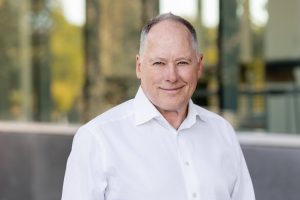
Blue Ocean: What or who are your sources of inspiration?
Richard: Working with young students is truly inspirational. I’ve had the privilege of watching students enter the program with little knowledge of dentistry, and in just four years, they transform into competent professionals. This journey is incredibly rewarding for me, as I learn so much from them. There’s a unique insight gained from being around younger people.
Blue Ocean: Do you have a favorite quote that resonates with you?
Richard: Yes, Winston Churchill is one of my favorites, known for his many impactful quotes. One that resonates with me is: “Success is not final, failure is not fatal; it is the courage to continue that counts.” This speaks to the importance of perseverance and resilience. While I may not always consciously recall those words, their meaning stays with me and influences my daily life. I think about it every day.
Blue Ocean: Beyond your professional life, what are your passions and interests?
Richard: I enjoy all outdoor activities. Cycling, cross-country riding, and especially hiking or backpacking in the wilderness are some of my favorites. There’s something special about being away from everyone and relying solely on what I carry in my backpack. While I’ve had wonderful experiences, I also recognize that some of them were quite dangerous. I thrive in situations that push me out of my comfort zone, whether it’s traveling to a new country where I don’t speak the language or facing physical or mental challenges. I seek out these experiences to grow.
Mission trips are particularly fulfilling for me. Even when I don’t have an interpreter with me, I relish the opportunity to understand different cultures and connect with the people. Traveling to other countries is truly one of my passions.
Blue Ocean: What is a habit that you’ve maintained throughout your life, one that has contributed to your productivity or perseverance, and that you would want to pass down to future generations?
Richard: I believe health is the top priority. In the healthcare environment, we often focus on helping others, sometimes working long hours beyond our shifts. However, it’s crucial to recognize that we can’t help others if we don’t take care of ourselves first. Maintaining a healthy lifestyle—through exercise, nutrition, and sleep—is essential. While I may not be perfect in all these areas, I strive to make a genuine effort.
Conclusion
Richard Williamson’s journey in dentistry highlights his dedication to helping others and his passion for learning. He emphasizes the importance of hard work, kindness, and giving back to the community. His experiences offer valuable advice for anyone interested in dentistry. Richard’s story shows us that one person can make a big difference in many lives.
Do you have a personal or professional story that can inspire other people into becoming the best version of themselves?
You are welcome to share your journey with our audience.

